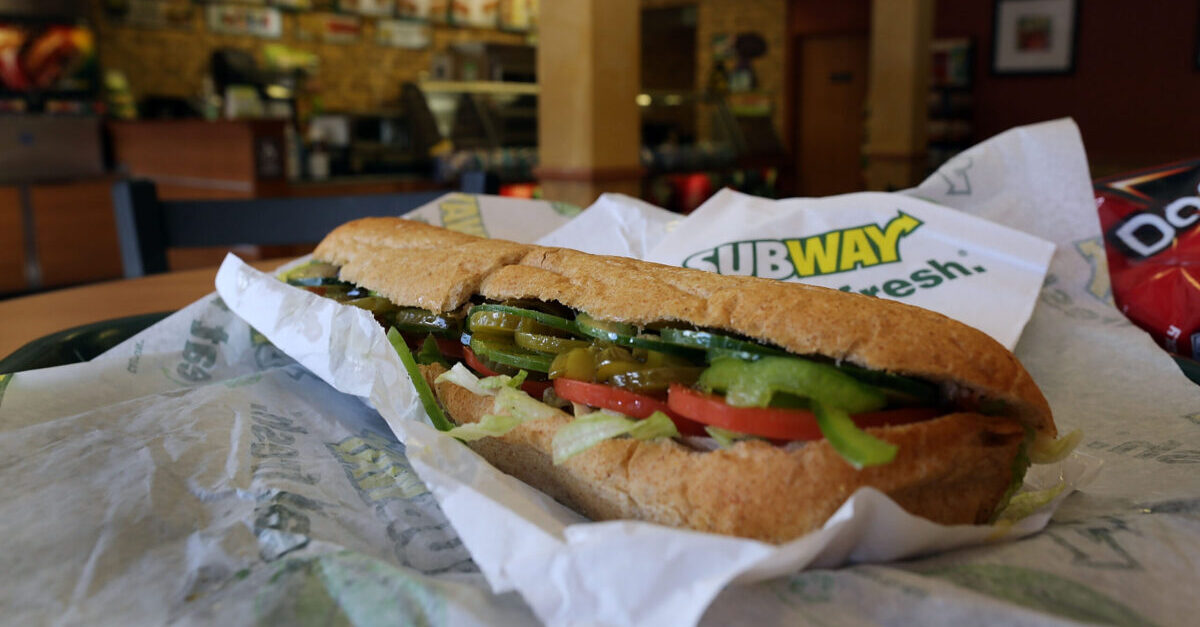
Two Californians are bringing a class action lawsuit against Subway restaurants, claiming that something is, uh, fishy with its tuna sandwiches. Plaintiffs Karen Dhanowa and Nilima Amin filed a lawsuit in California federal court over an alleged bait-and-switch perpetrated by the sandwich giant. “Aware that consumers place a heightened value on tuna as an ingredient,” reads the complaint. It further alleges that though Subway purports to sell tuna products, its sandwiches and wraps “lack tuna and are completely bereft of tuna as an ingredient.” The damages for these alleged stone-cold lies are over $5 million, say the plaintiffs.
I KNEW IT. I FUCKING KNEW IT. https://t.co/juDowJdqvK
— Noah Shachtman (@NoahShachtman) January 28, 2021
The complaint charges that Subway’s marketing is “blatantly false.”
“As independent testing has repeatedly affirmed,” the document says, Subway’s tuna sandwiches “are made from anything but tuna.”
What, exactly is the “tuna,” you may wonder?
According to the complaint, it’s “a mixture of various concoctions that do not constitute tuna, yet have been blended together by Defendants to imitate the appearance of tuna.”
Federal law prohibits misbranding a food product sold by using “false or misleading” labeling. California state law similarly prohibits the concealing of ingredients in “adulterated” food. Though the numerous legal standards for food labeling can be complex, the lawsuit charges forward on pure force of common sense:
“When a consumer sees a food product labeled and identified as ‘tuna,’ or containing ‘tuna’, they reasonably expect the food will contain tuna fish. The Products that Defendants have advertised and continue to market as having tuna as an ingredient or being comprised of tuna do not have tuna fish as their component. Instead, Defendants have been selling and continuing to sell some mixture that is deceptively and dishonestly being passed off as tuna to purchasers.”
The damages alleged include the financial (actual tuna is worth more than fake tuna, so consumers deserve compensation for that alleged difference in value), as well as the equitable (subway should be made to pay for allegedly tricking its customers).
The plaintiffs raise numerous legal causes of action, including misrepresentation, fraud, negligence, unjust enrichment, deceptive business practices, mislabeling, and misbranding.
The California lawsuit isn’t the first time Subway faced legal action over the content of its food. In 2020, Ireland’s highest court ruled that Subway’s bread could not legally count as “bread” because it contained too much sugar. If you missed that story when it first happened, you’re not alone.
I love how a court ruled that Subway bread is not legally bread but because 2020 was so crazy, we just breezed right past it?
— Elamin Abdelmahmoud (@elamin88) January 26, 2021
In 2013, Subway faced litigation over the length of its “footlong” sandwiches — which were said to fall short.
Subway’s nutritional information page lists its tuna salad as containing “flaked tuna in brine.”
“These claims are meritless,” a Subway spokesperson said in a statement Thursday to Law&Crime. “Tuna is one of our most popular sandwiches. Our restaurants receive 100% wild-caught tuna, mix it with mayonnaise and serve on a freshly made sandwich to our guests.”
Subway Tuna Lawsuit by Law&Crime on Scribd
[image via Peter Summers/Getty Images]